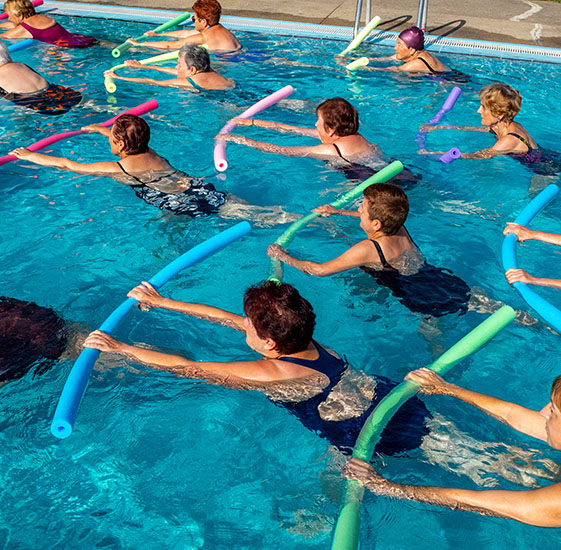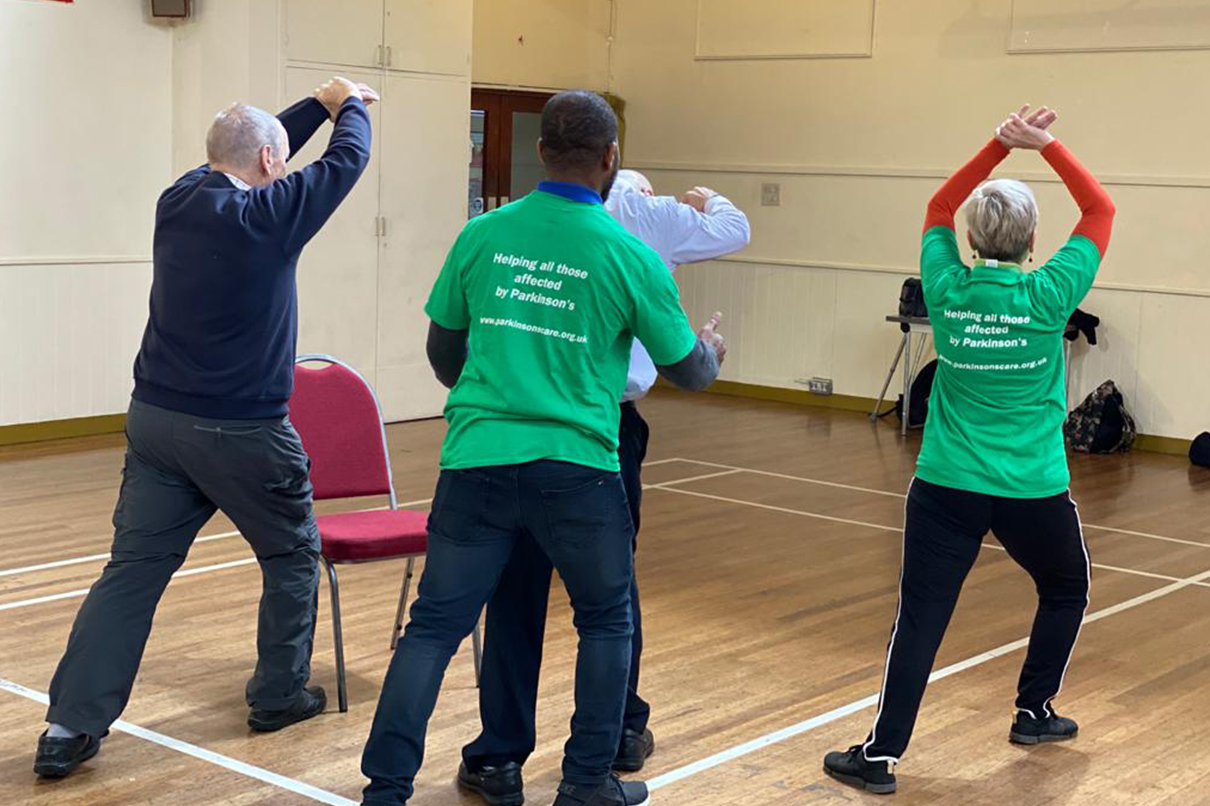Exercise Tips
The type of exercise that works best for you depends on your symptoms, fitness level, and overall health. Generally, exercises that challenge you physically (high intensity), use a full range of motion and involve mental stimulation are encouraged.

Some basics to keep in mind when exercising with Parkinson’s
- Always warm-up before beginning your exercise routine and cool down at the end.
- If you plan to workout for 30 minutes, start with 10-minute sessions and work your way up.
- Work out in a safe environment; avoid slippery floors, poor lighting, throw rugs, and other potential dangers.
- Exercise your facial muscles, jaw, and voice when possible: Sing or read aloud, exaggerating your lip movements. Make faces in the mirror. Chew food vigorously.
- Try water exercise, such as water aerobics or swimming laps. These are often easier on the joints and require less balance.
- If at any time whilst exercising you feel sick, dizzy or you begin to hurt, stop.
- If you have difficulty balancing, exercise within reach of a grab-bar or rail.
- If you have trouble standing or getting up, try exercising in bed or on a chair rather than on the floor or an exercise mat.
Keeping Motivated
- In order to give yourself the best chance of developing a regular exercise routine, it is important to do something that you enjoy. If you are not keen at running, why not try walking, swimming, water aerobics, boxercise, yoga or tai chi?
- Find an exercise buddy or join a Parkinson’s Care and Support UK exercise class. People often enjoy working out alongside others as peer support can be motivating.
- We all know that the nature of Parkinson’s is unpredictable and that no two days are the same. Therefore, it is important to make the most of the days where you are feeling particularly well and engage in as much physical activity as possible. On days where you do not feel so great, try activities such as walking, yoga or gardening, all which get the body moving, heighten your senses and release endorphins.
- Sign up to a Parkinson’s Care and Support UK fundraising walk or running event! You may find that you are more motivated to keep fit and exercise when you have a goal to work towards.
- Keep a log of how you feel after you exercise. It may be helpful to go back and look at the improvements that you feel after exercising. This should help you to focus on the benefits that you gain.
- Add variety to your exercise routine. Keep your workouts fresh by trying new routines, like yoga, tai chi or high intensity interval training (if you are able to).

